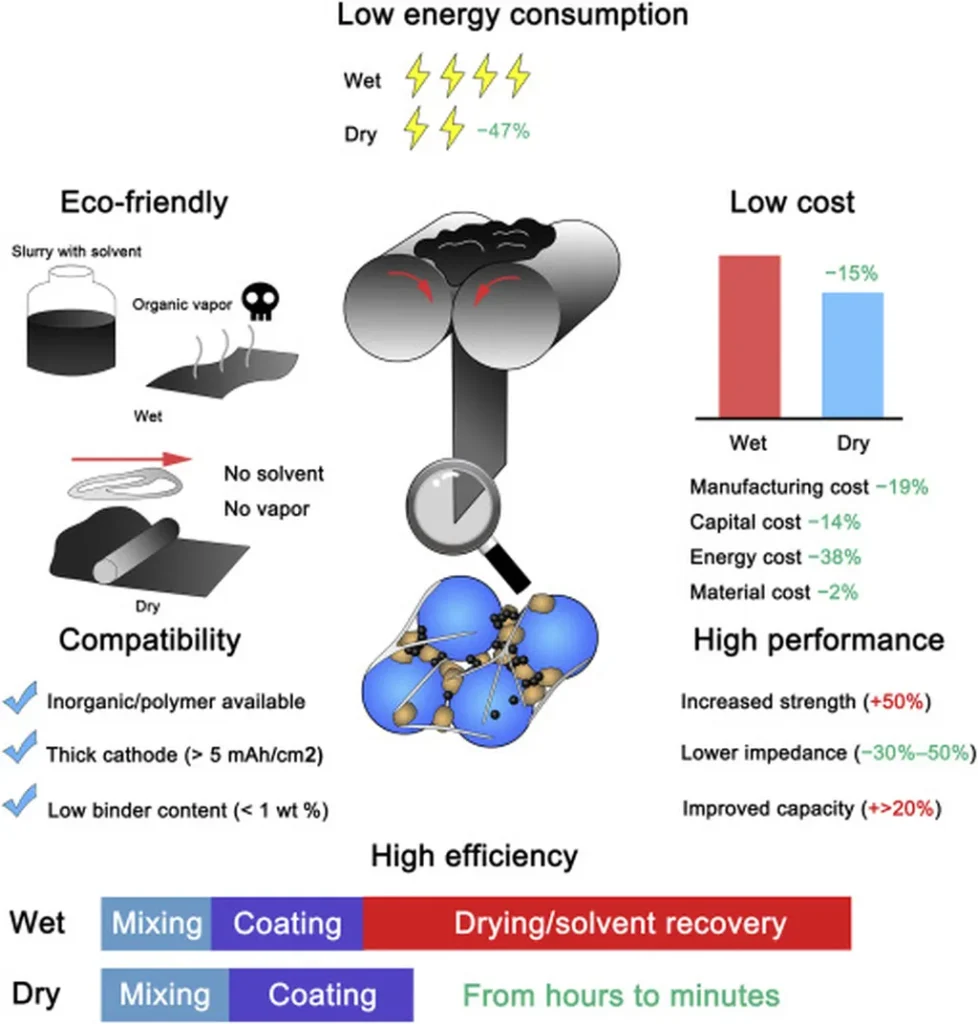In a significant stride toward the commercialization of solid-state batteries (SSBs), researchers have unveiled promising advancements in dry electrode technology (DET). This innovative approach seeks to address the persistent challenges of scalable fabrication, high-loading electrodes, and robust thin solid electrolytes that have hindered the widespread adoption of SSBs. The research, led by Yuan Liu from the Hong Kong University of Science and Technology and Southern University of Science and Technology, highlights the potential of DET to revolutionize battery manufacturing processes.
“Dry electrode technology not only simplifies production procedures but also enhances the loading capacity of electrodes, which is crucial for achieving the high energy density that solid-state batteries promise,” Liu explained. By eliminating the reliance on solvents, DET mitigates issues related to solvent sensitivity that have plagued traditional slurry-based systems.
The study, published in the journal Next Energy, delves into the limitations of conventional wet processing methods and presents DET as a viable alternative. Liu and his team meticulously analyze various DET methodologies, emphasizing their applications across cathodes, anodes, and solid electrolytes. The insights gathered from this research are expected to pave the way for more efficient manufacturing practices and improved material performance.
One critical aspect of the research is the selection of binders, which significantly impacts the quality of dry films used in battery construction. “The right binder can make or break the performance of a dry electrode,” Liu noted, underscoring the importance of material science in the development of next-generation batteries.
As the energy sector increasingly shifts towards sustainable solutions, the implications of this research extend beyond academic interest. The successful scale-up of solid-state batteries could lead to safer, more efficient energy storage systems, potentially transforming electric vehicles and renewable energy applications. With growing demand for high-performance batteries, the advancements in DET could catalyze a new era in energy storage technology.
The findings from Liu’s research not only highlight the technical advancements in battery technology but also signal a pivotal moment for the energy industry as it seeks to meet the challenges of a rapidly evolving market. As the push for commercialization intensifies, the integration of dry electrode technology into solid-state battery production may very well determine the future landscape of energy storage solutions.
For more information about the research and its implications, you can visit the Department of Chemistry at the Hong Kong University of Science and Technology, where Liu and his colleagues continue to explore innovative pathways in energy materials.

